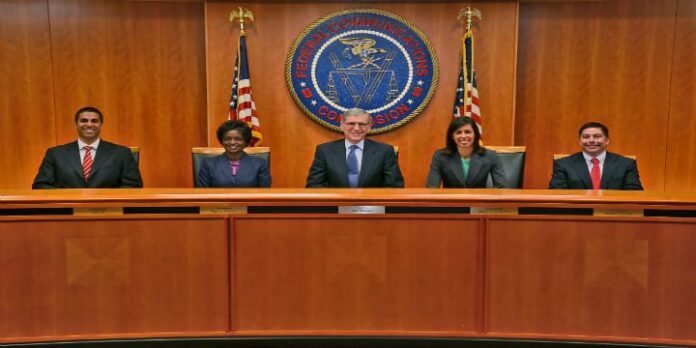60 firms, including Intel, Cisco, Qualcomm, IBM sign letter to FCC
President Barack Obama’s recent suggestion that the Federal Communications Commission bring Internet regulation under Title II oversight brought a stinging rebuke from tech-industry leaders.
A list of 60 technology companies signed a letter sent to the FCC arguing against the government agency bringing Internet services under Title II regulations, which are what govern traditional wireline-based communication services. Those companies, which included Intel, Cisco Systems, Qualcomm and IBM, claimed the move could result in a loss of up to $45.4 billion in capital investment over the next five years.
“Title II would lead to a slowdown, if not a hold, in broadband build out, because if you don’t know that you can recover on your investment, you won’t make it,” the letter stated. “The investment shortfall would then flow downstream, landing first and squarely on technology companies like ours, and then working its way through the economy overall. Just a few years removed from the worst recession in memory, that’s a risk no policymaker should accept, let alone promote.”
President Obama last month sent a letter to the FCC, seeming to indicate his support for broadband services being classified under Title II.
“We cannot allow Internet service providers to restrict the best access or to pick winners and losers in the online marketplace for services and ideas,” Obama noted in a statement on the issue. “That is why today, I am asking the Federal Communications Commission to answer the call of almost 4 million public comments, and implement the strongest possible rules to protect net neutrality.”
In his comments, Obama laid out what he called “bright-line” rules that he has asked the FCC to integrate into its net neutrality plans. Those include preventing an Internet service provider from blocking any content or “intentionally” manipulating network speeds for accessing content. Obama also called for increased transparency when it comes to interconnection between ISPs and the Internet, noting the FCC should make full use of its transparency authority. In addition, Obama stated the FCC should prevent the implementation of paid prioritization for accessing content or for content to run over a broadband connection.
In his comments, Obama also noted that such regulations should be put in place regardless of the connection method, including wireless, though with a caveat.
“The rules also have to reflect the way people use the Internet today, which increasingly means on a mobile device,” Obama noted. “I believe the FCC should make these rules fully applicable to mobile broadband as well, while recognizing the special challenges that come with managing wireless networks.”
Telecom operators hint at legal action
Telecom operators have already come out against Title II action, with both Verizon Communications and AT&T hinting at possible legal action.
“That course will likely also face strong legal challenges and would likely not stand up in court,” Verizon noted in a policy blog.
“We feel the actions called for by the White House are inconsistent with decades of legal precedent as well as Congressional intent,” said Jim Cicconi, SEVP of external and legislative affairs at AT&T. “Moreover, if the government were going to make such a momentous decision as regulating the entire Internet like a public utility, that decision is more properly made by the Congress and not by unelected regulators without any public record to support the change in regulation. If the FCC puts such rules in place, we would expect to participate in a legal challenge to such action.”
Wireless trade association CTIA also came out against the move toward invoking Title II oversight.
“Imposing antiquated common carrier regulation … on the vibrant mobile wireless ecosystem would be a gross overreaction that would ignore the bipartisan views of members of Congress and the FCC, would impose inappropriate regulation on a dynamic industry and would threaten mobile providers’ ability to invest and innovate, all to the detriment of consumers,” explained CTIA President and CEO Meredith Attwell Baker. “CTIA strongly opposes such an approach.”
The most recent dance around the net neutrality issues is tied back to earlier this year when The United States Court of Appeals for the District of Columbia ruled against the FCC in how it was looking to regulate Verizon’s business model for delivering broadband services.
FCC Chairman Tom Wheeler has since attempted to broker some form of agreement that would appease both sides of the issue with little luck. Wheeler acknowledged that he held beliefs similar to Obama’s on net neutrality, and touched on a number of initiatives the FCC is looking at in finding a solution, including recently proposed “hybrid” approaches that would include a mix of Title II and the current Section 706 that provides the FCC with authority to tackle policies that could hinder Internet access.
“The reclassification and hybrid approaches before us raise substantive legal questions,” Wheeler noted. “We found we would need more time to examine these to ensure that whatever approach is taken, it can withstand any legal challenges it may face.”
Bored? Why not follow me on Twitter?

